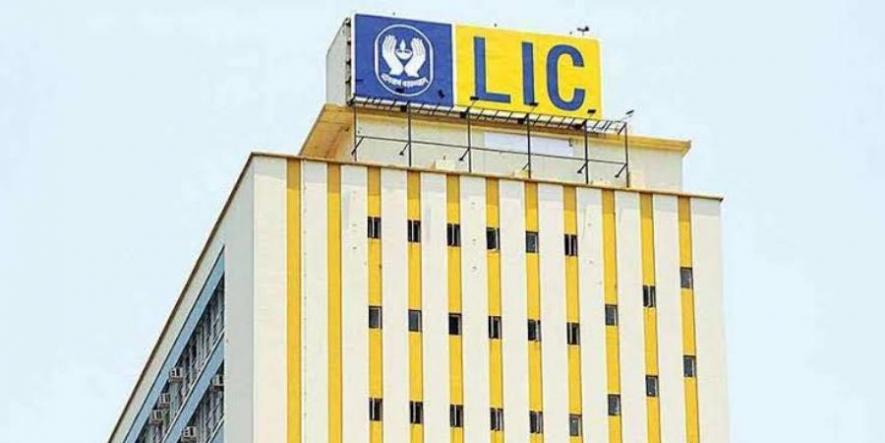Budget 2021: Disinvestment Push Irks Govt Employees; Protests to Intensify

Representational Image. Image Courtesy: PTI
New Delhi: Even as the disinvestment target for the upcoming fiscal year has been reduced from what was described in the previous year as an “ambitious” budget estimate from the receipts and sale of stake in public sector banks and financial institutions, identification of the strategic sectors in line with the new Public Sector Enterprises Policy has only put the government employees in jitters.
In the Union Budget 2021-22, presented by the Finance Minister Nirmala Sitharaman on Monday, the Centre announced a disinvestment target of Rs 1.75 lakh crore – Rs 75,000 crore from disinvestment and Rs 1,00,000 crore from sale of stake in public sector banks and financial institutions. For 2020-21, this target was Rs 2.1 lakh crore, out of which only Rs 32,000 crore was realised, the revised estimated for the said fiscal year show.
The under realisation of the disinvestment push last year was largely due to the COVID-19 pandemic-triggered economic shocks that had derailed much of the proposed big-ticket disinvetsment plans of the Narendra Modi–led Bharatiya Janata Party (BJP) government. However, exactly in those times, the Centre came up with a new policy for the public companies under its much touted ‘Atmanirbhar Bharat’ package.
The policy: a maximum of four state-owned companies in strategic sectors, with public firms in other segments to eventually be privatised or get closed.
On Monday, laying down the roadmap for the same, FM Sitharaman announced what the Centre has now identified as four strategic sectors – atomic energy, space and defence; transport and telecommunications; power, petroleum, coal and other minerals; banking, insurance and financial services – in only which, according to her a “bare minimum” presence of the central public enterprises will be maintained.
The identification of the strategic sectors serve as a clarion call to push forward the the policy of “selling the national assets”, if leaders of multiple government employees’ unions are to be believed, who further say that this is so despite numerous protests staged in the past against this path.
A sentiment that private players go “solely after the profits”, while public companies are more concerned with the “social welfare of the citizens” runs across the board among the unions. And as such, the “anti-privatisation” drives were only rejuvenated last year, according to the leaders, when the pandemic-induced lockdown had reinforced the significance of public companies in the Indian economy.
Done with demonstrations, many union leaders confessed to looking up to the ongoing farmers’ agitation, suggesting that “the model of protest” can be emulated by the government employees’ union as well in the days to come.
Anil Kumar Bhatnagar, president, All India Insurance Employees’ Association (AIIEA), while speaking of the disinvetsment push, called the intention of the Centre as “malafide”. In the upcoming fiscal year, the government is set to put Life Insurance Corporation of India (LIC) for an initial public offering, along with privatising one general insurance company in the sector.
“The insurance employees from the very start are against the public offering of the LIC. The Centre has maintained that doing so will bring transparency and accountability – both of which are not pertinent enough to LIC,” he told NewsClick.
According to Bhatnagar, the state-owned insurance and investment corporation, that was established in 1956, submits quarterly reports, its books are audited by IRDA as well as external auditors, which are all then sent to Parliamentary bodies for approval. “As far as the accountability is concerned, media reports clearly show far lesser compliance of the private companies,” he argued, while referring to YES Bank and “multiple cooperative banks”.
When asked who will suffer due to the IPO, Bhatnagar answered that it will be the “40 crore LIC insurance holders” who currently enjoys the “95 percent of the company’s dividend”. “If the Centre goes ahead with its plans – for which they will have to amend the LIC Act of 1956 – the employees will strike their work for one day in protest across the country,” he added.
Likewise, Debasish Basu Chaudhary of Bank Employees Federation of India (BEFI) flayed the privatisation of two private sector banks (in addition to IDBI bank) – as announced by FM Sitharaman on Monday – arguing that the “regulatory laws in India are not suitable enough to have an oversight on the operations of private banks.”
Moreover, the nationalisation of banks, which had happened in 1969, was done to “enable banking services reach poor people and in the rural areas,” Chaudhary argued. “What will happen to such social objectives if we were to go ahead and privatise the nation’s banks?,” he asked.
S. Gireesh, general secretary, Bharat Earth Movers Limited (BEML) Employees Union, too rued that the idea behind privatising a “profit making company which has currently got book orders worth over Rs 3,000 crore” is “beyond our comprehensions.”
The current pipeline of the companies that are up for disinvestment comprises BEML, Bharat Petroleum Corporation Limited, Container Corporation of India, among others, whose process is slated to be completed in 2021-22.
Gireesh informed NewsClick that Tuesday is the 28th day of the indefinite dharna that the employees of the defence public sector enterprise are staging at its one of the units in Kerala’s Palakkad. “We shall intensify our protests in the coming days, meetings for which are currently going on,” he said.
The urgency to intensify the struggles was also echoed by Aji MG, general secretary, Cochin Refinery Workers’ Association (CRWA), that is active in the BPCL’s oil refinery in Kerala’s Kochi.
“The BPCL employees have staged a work strike in the past; we have also approached the courts to stall the privatisation drive but to no avail. Even today (on Tuesday) gate meetings were organised in protest of the Union Budget that was presented,” he told NewsClick.
What the oil employees are planning then in the days to come? “We believe that the only way we are left with is to adopt the model of protest that is currently being spearheaded by the farmer unions,” said Aji MG.
Binay Kumar Chaudhary, president, CONCOR Employees Union, agreed. “The Centre is all going ahead with its announcements to privatise as many public companies as it likes without even first consulting with the employees’ unions – the major stakeholders,” he said, further questioning what would happen to the service conditions of the government employees post privatisation.
Possibly, in a hope to raise these very issues that are not unique to any one particular public enterprise, Aji MG of CRWA had suggested that meetings will be held “in the near future” with not just oil employees’ unions but others as well to chart out a nationwide protest action plan.
Shiv Gopal Mishra of the All India Railwaymen Federation (AIRF), one of country’s largest employees’ union, also raised concerns with what he chose to call a “Union Budget that is in the direction to privatise the Indian Railways.”
FM Sitharaman on Monday had proposed a “record” allocation of Rs. 1.1 crore for the Indian Railways, which was badly hit last year due to the pandemic, with a capital expenditure outlay of Rs. 2.15 lakh crore for the next financial year.
Even though Mishra contended that the increased capital expenditure for the 2021-22 will “surely lead to capacity augmentation and safety enhancement,” he still had his doubts regarding the Centre’s plans to “update the existing infrastructure and develop it according to the needs of the nation.”
Mishra said, “The budget is not entirely good either for the Railways, railwaymen or even for the rail passengers.” On possible privatisation of the Indian Railways, he reiterated that the railwaymen will “not let that happen.”
“Under our ‘Rail Bachao, Desh Bachao’ mission, we are currently in the process of forming committees with railway stations across the country acting as nodal points for the functioning of such committees. Not just railwaymen but lawyers, accountants, workers are also joining these bodies to stop privatisation of the railways,” he said.
Alok Kumar Roy, president, National Confederation of Officers’ Association (NCOA), however chose to strike a slightly different chord. He chose not to indulge in what he called, “blanket opposition” to the divestment push of the Centre.
“I do not oppose the divestment of public companies in a blanket manner for I somewhat agree with the argument of the Centre of not having too many public companies in a sector,” he told NewsClick.
Having said this, Roy added that this can however be “best” achieved by “merger and acquisitions or monetisation of the assets” of the public enterprises in a sector rather than stake sale.
The Central government is selling PSUs to plug its fiscal deficit gap, while “wrongly” comparing the books of public companies with that of their private counterparts for the sake of justifying its move, said Roy.
“After all, the Centre must not forget that while the private companies go solely after profits, the public sector is more concerned with the social welfare of the citizens as well,” he added.
Get the latest reports & analysis with people's perspective on Protests, movements & deep analytical videos, discussions of the current affairs in your Telegram app. Subscribe to NewsClick's Telegram channel & get Real-Time updates on stories, as they get published on our website.
























